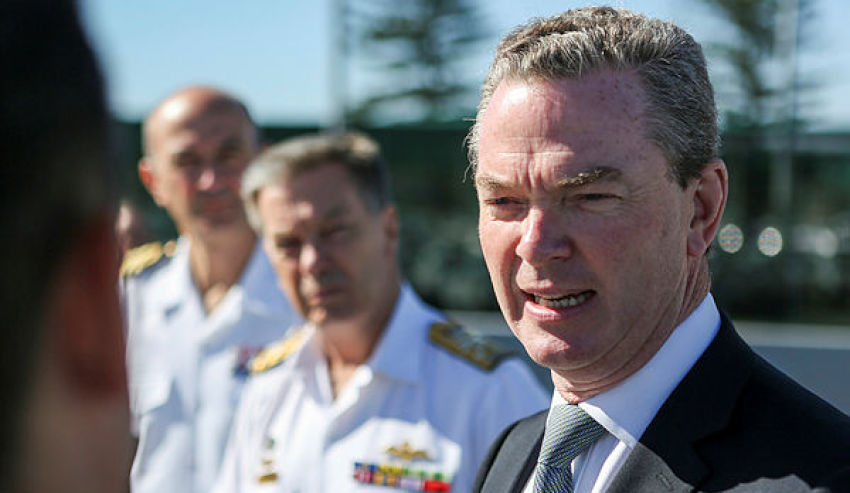The future of Australia’s economic growth and its national security go hand in hand, according to Minister for Defence Industry Christopher Pyne.
Speaking at a conference in Canberra, Minister Pyne argued that the government’s plans to reshape the Australian Defence Force (ADF) will secure a long-term future for the defence industry and, by default, provide enhanced national security.
"It is just over 12 months since the Turnbull government declared its intention to reshape the Australian Defence Force and our local defence industry to guarantee the future security of the nation and support our economic prosperity," said Minister Pyne.
Minister Pyne said the release of key Defence programs have been pivotal in building economic prosperity and national security capabilities.
"The process began at the end of February last year, with the release of the defence white paper, the Integrated Investment Program and the Defence Industry Policy Statement," he said.
"In the white paper we acknowledged that our national security, our economic well-being – indeed, our very way of life – will be challenged more frequently and from a wider range of sources over coming decades than ever before.
"We explained that as a government we had choices as to how we should respond – whether we would accept others determining our future security and prosperity, or whether we would ensure that we had the military capacity, the robust strategy and the well-deployed resources that we need to shape our destiny, and preserve everything we value – the characteristics that make us Australians and the envy of the world. We chose the latter."
Minister Pyne said the government’s decision to invest $195 billion into defence over the next decade was another key part of growing Australia's economy and providing superior national security.
"We chose to spend $195 billion over the next decade to underpin our national security over the next half-century," he said.
"It is a truth acknowledged, but rarely stated, that national security and economic prosperity go hand in hand. One is impossible without the other.
"The Turnbull government chose to make this link explicit."
Understanding this link is part of the government’s defence agenda moving forward, in order to enforce policies, and is crucial, said Minister Pyne.
"This needs to be very clearly understood because it is the very essence of the government’s policies," he said.
"The Australian defence industry is front and centre of this government’s vision for jobs and growth in the Australian economy.
"This is where the jobs of the future will be created – and with them the broader growth that we need to ensure Australia maintains our position as an advanced economy among the top ranks of nations in the 21st century."
The minister stressed that, forging ahead, this key message will be reiterated by himself and the government.
"For this mission to be successful it is important that this message resonates broadly. It needs to be heard outside of Canberra, in the think-tanks, the universities and research establishments, among industry and defence contractors," Minister Pyne said.
"Australians – outside the defence and government bubble – need to understand the linkage between national and economic security."
Since the unveiling of the 2016 defence white paper, the $730 million Next Generation Technologies Fund was launched and the Thales' Hawkei project reached a major milestone, handing over its first 10 vehicles to Defence.
The Centre for Defence Industry Capability (CDIC), which has been funded at $230 million over the decade and is a close collaboration between the private sector, Defence and AusIndustry, and the $640 million Defence Innovation Hub have also been launched.
The Future Submarines Project has also been identified as a key achievement for the government, with the first contract with DCNS signed ahead of schedule to mobilise the resources needed to develop the future submarines.
Also of importance in maritime capabilities is the Future Frigate and Offshore Patrol Vessel programs.
The Future Frigate Program will create nine anti-submarine warfare frigates in Adelaide, which will cost $35 billion.
The $3-4 billion program to construct 12 Offshore Patrol Vessels will begin in Adelaide in 2018 before transitioning to Western Australia in 2020.



